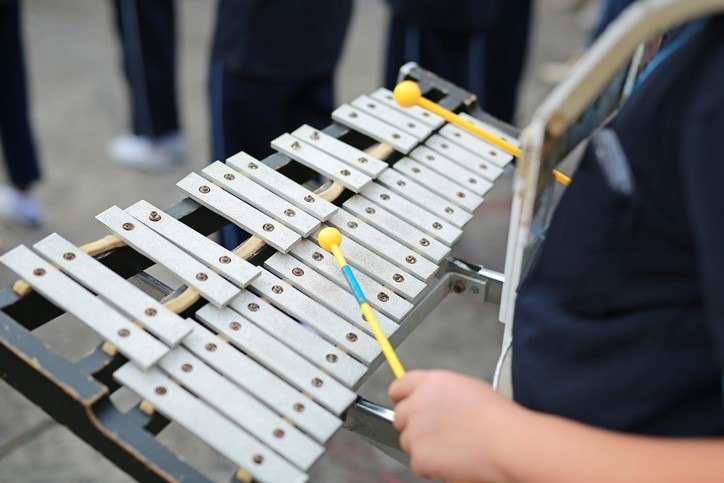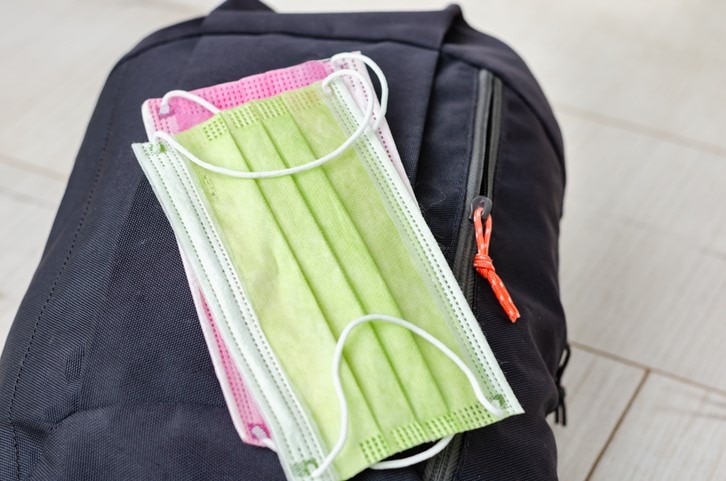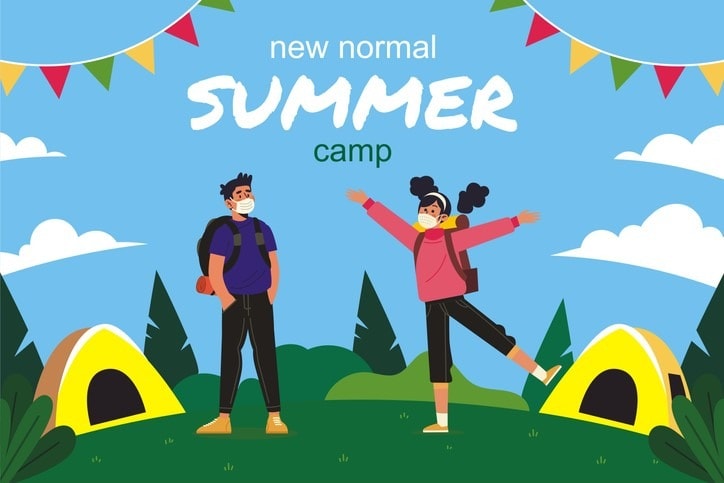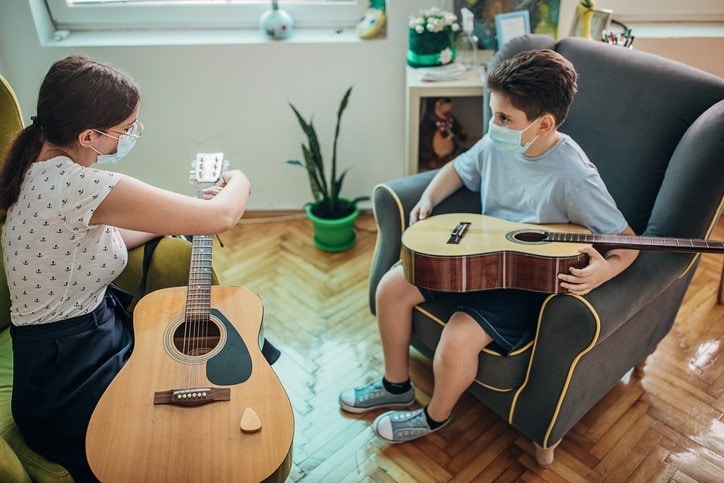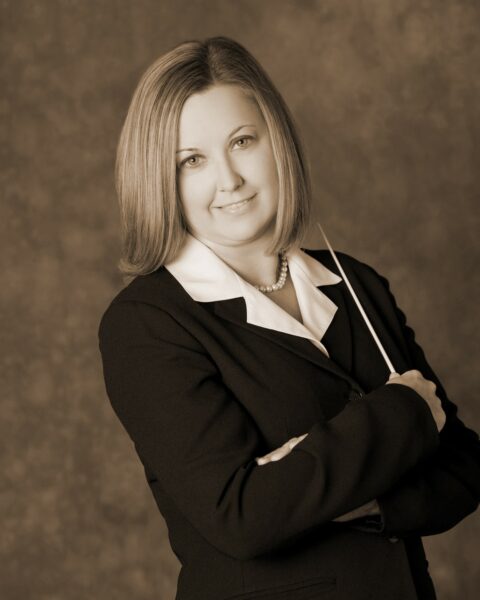/ News Posts / Post-COVID: Considerations in Choosing a Summer Music Camp
Post-COVID: Considerations in Choosing a Summer Music Camp
By NAfME Member Jenny L. Neff
In 2019, I wrote a blog post entitled “Considerations in Choosing a Summer Music Camp.” While many of the presented topics still remain valid for 2021, the past year has created additional considerations for choosing a summer music camp.
We know that online learning has been a challenge to both teachers and students. While we have managed to do our best, we also know some of the “music” may have taken a back seat. And rightly so. The health and well-being of our students (and everyone for that matter) has been our priority. Similarly, in response to COVID, we have focused more on social and emotional learning for our students and navigating the many changes we have experienced over the course of the school year.
Perhaps for some students and their families, this might not be the year to seek out an extended camp experience, while for others it might be the right time for a much-needed break from being at home and immersing themselves in the music they love and have missed.
In a typical year, we know a music camp or enrichment experience can help keep students going over summer months. Whatever our students can gain in music skills over the summer will help them as they return in the fall. But let’s remember that the social and emotional skills have also been essential to their learning, and definitely something that should be considered when seeking a camp community.
The American Camp Association (2005) has extolled many benefits of summer camps, including students developing a positive self-identity, social skills, physical skills, thinking skills, and positive values. These are all qualities we foster in our classrooms (Neff, 2019).
It will still be important to check the basics I listed in the previous blog. These included:
- Camp Type
- Musical Style/Content
- Gender Groupings
- Faculty and Counselor Backgrounds
- Networking with Previous Campers
- Affordability
Camper and Camp Readiness
In my last blog, I addressed the camper-readiness for the student. Being away from family and staying overnight for a length of time, is something for which the student needs to prepare. Leaving home after a year of online learning could make the transition something to plan more carefully.
Knowing the child’s strengths and weaknesses, musically and otherwise, are important and should be shared with camp faculty and staff. If everyone is aware of this information, the social, emotional, and learning considerations have a better chance of being supported. Similarly, don’t be afraid to ask about camp-readiness.
- What supports are in place for students who might have some type of stress, anxiety, emotional, or learning difficulty?
- Are there people on staff who have experience with these types of scenarios?
- What is in place to address a variety of areas such as inclusion, gender identity, sexual orientation, campers with special needs, and interfaith issues?
So, how are music camps preparing for this summer? What protocols are in place for keeping everyone safe during COVID? Matthew Wiggin, Camp Co-Director at New England Music Camp (NEMC) highlighted some of the protocols they have put in place for Summer 2021.
- They’ve created a closed bubble for this summer. Guests will still be able to come to their weekend outdoor concerts, but will be sitting in designated areas away from the camp population, and using different concessions and bathrooms. Masks must be worn at these concerts if within 6 feet of other persons.
- They are implementing a three-tier testing strategy. The plan includes a negative COVID test within 72 hours of arrival, as well as passing a rapid COVID test upon arrival. Five days after arrival, campers and staff will have a third PCR test (or polymerase chain reaction test). Once the camp population clears all three rounds, they will open up within the camp bubble.
- Additional protocols include: modified pods by cabin; multiple eating areas to maintain social distancing; mask wearing; outdoor rehearsal in covered spaced when possible; fully vaccinated faculty, staff, and counselors; daily cleaning of spaces; and the availability of COVID tests as needed. NEMC’s full list of protocols is posted on their website.
Guidelines
The CDC (2021) has provided “Guidance for Operating Youth and Summer Camps during COVID-19.” Families will want to read over these guidelines and see how the camps they are considering will modify their practices and protocols for this summer.
The CDC guidelines for overnight camps, suggest having an Emergency Operations Plan (EOP). In the EOP, the following areas should be addressed (CDC, 2021):
- Strongly encouraging vaccination for all eligible people
- Health screening for symptoms of COVID-19 and testing for COVID-19
- Using multiple prevention strategies including masks, physical distancing and cohorts, residential housing arrangements for overnight camps, and improved ventilation
- Reviewing safety protocols for staff and campers who might be at higher-risk of serious health effects if they contract COVID-19
- Modifying camp activities to promote outdoor and other lower-risk activities
- Traveling to and from overnight camp
- Cleaning facilities and equipment
- Proper use of personal protective equipment by any healthcare staff
- Policies and practices that enable staff when they are sick, have been exposed, or are caring for someone who is sick
- Policies and practices that allow families flexibility if campers have symptoms or test positive before arriving at camp
- Managing suspect or confirmed case(s), including contact tracing efforts
- Planning for an outbreak
More specific to music, the aerosol studies have been a focus of our school year, and something that should be reviewed and considered by music camps. The article by Spede and Weaver (2021) has a conglomeration of resources worth reviewing, including mitigation video suggestions for choral and instrumental programs. Additional research findings are presented from the University of Colorado and the University of Maryland Wind Instrument Aerosol Study.
The “Priceless” Factors
There are priceless factors that still remain, even post-pandemic.
- A sense of community is something students can bring back to share with your program.
- Students will develop long-lasting friendships with other musicians from around the country. This summer after a lot of online learning, that could be the jackpot!
- Students may have the opportunity to try a new area of music they have not before.
- Students can give technology a break—another bonus for this summer, especially.
Resources:
Center for Disease Control and Prevention (2021, April 24). Guidance for Operating Youth and Summer Camps during COVID-19.
Neff, J. (2019, April 30). Expanding Musical Opportunities: Considerations in Choosing a Summer Music Camp. National Association for Music Education.
New England Music Camp (2021). NEMC Covid 19 Safety & Protocols.
Spede, M. and Weaver. J. (2021, April 30). National Federation of State High School Associations. Unprecedented International Coalition led by Performing Arts Organizations to Commission COVID-19 Study.
About the author:
NAfME member Jenny L. Neff, Ed.D. is Associate Professor of Music Education and the Director of M.M. and Summer Music Studies programs at The University of the Arts in Philadelphia. She is also an active blogger, presenter, adjudicator, clinician, and guest conductor.
Did this blog spur new ideas for your music program? Share them on Amplify! Interested in reprinting this article? Please review the reprint guidelines.
The National Association for Music Education (NAfME) provides a number of forums for the sharing of information and opinion, including blogs and postings on our website, articles and columns in our magazines and journals, and postings to our Amplify member portal. Unless specifically noted, the views expressed in these media do not necessarily represent the policy or views of the Association, its officers, or its employees.
Published Date
May 24, 2021
Category
- Lifelong Learning
- Recruitment and Retention
- Social Emotional Learning
Copyright
May 24, 2021. © National Association for Music Education (NAfME.org)
